Today’sCPA
Texas Society of Certified Public Accountants




Texas Society of Certified Public Accountants



TXCPA Members in Action at the State Capitol


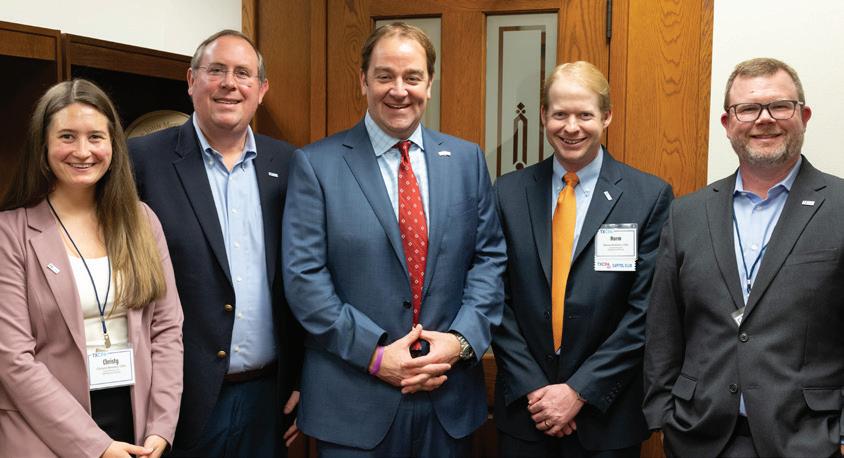


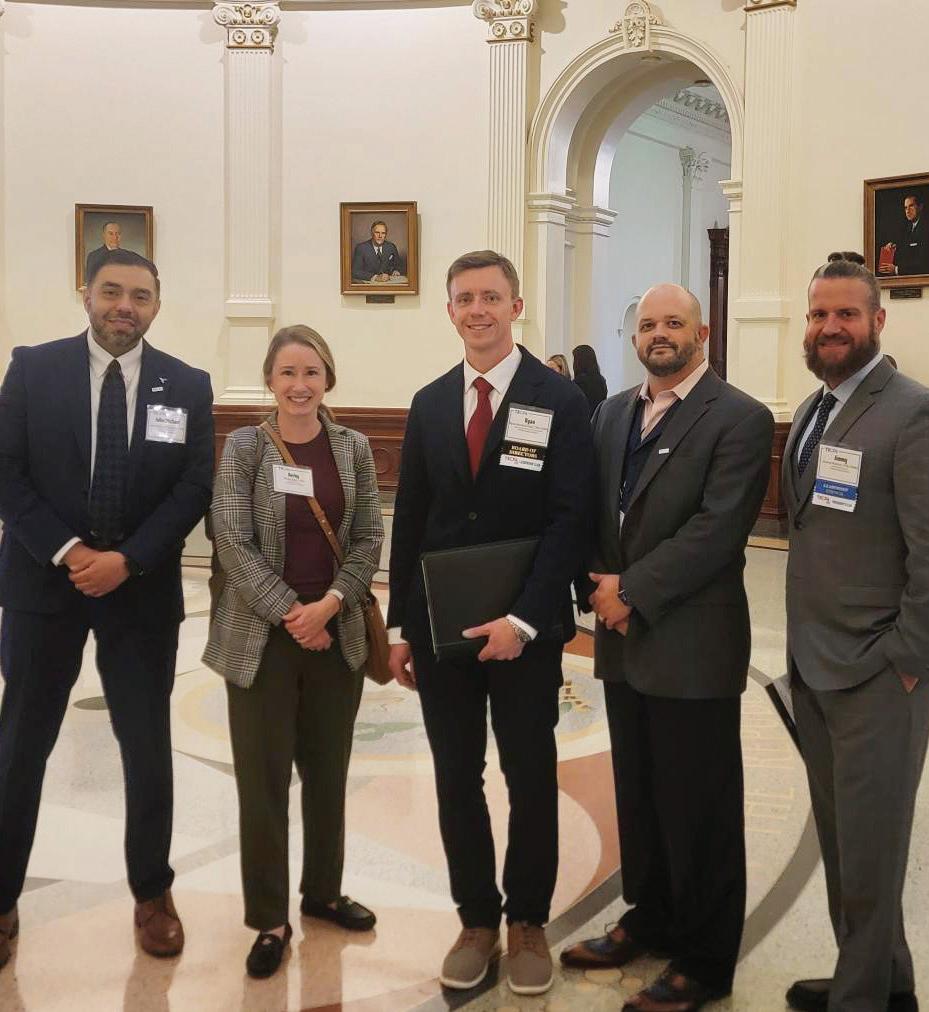











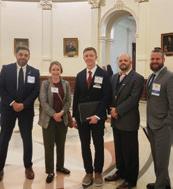




Member Benefit Provider
CPACharge has made it easy and inexpensive to accept payments via credit card. I’m getting paid faster, and clients are able to pay their bills with no hassles.
Trusted by accounting industry professionals nationwide, CPACharge is a simple, web-based solution that allows you to securely accept client credit and eCheck payments from anywhere. – Cantor Forensic Accounting, PLLC
22% increase in cash flow with online payments

65% of consumers prefer to pay electronically
62% of bills sent online are paid in 24 hours




Get started with CPACharge
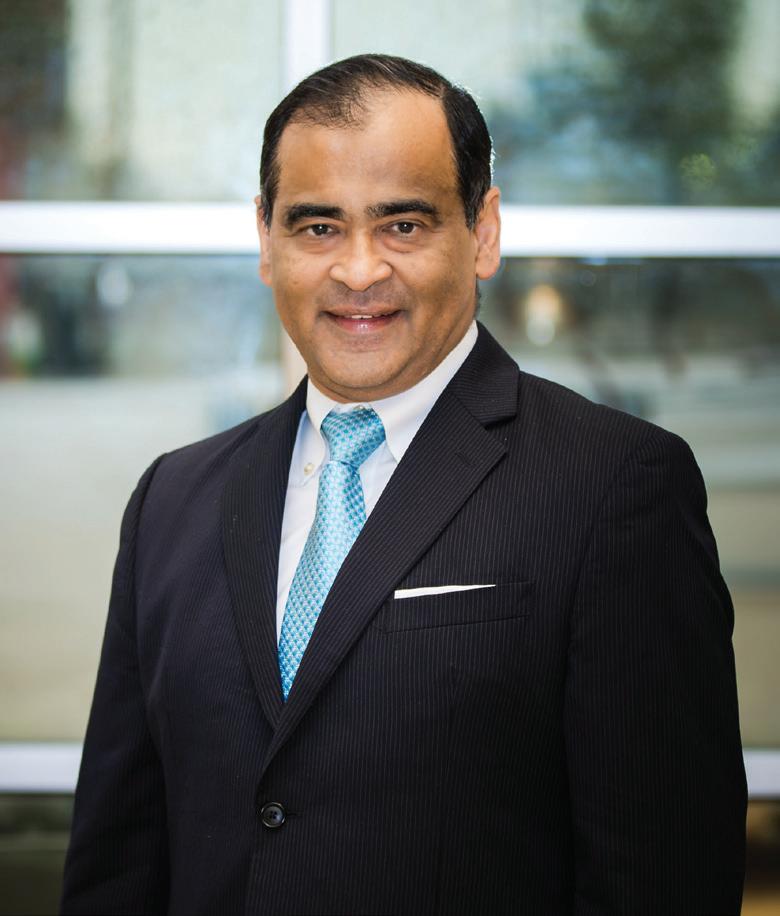
Welcome to your March/April issue of Today’s CPA. I am thrilled to share the remarkable success of our efforts at the state Capitol during our 2025 Advocacy Day on January 28. The dedication and passion of our members and leadership have truly made a difference, and I couldn’t be prouder of what we have achieved together.
During our visits, we had the opportunity to meet with key legislators and their staff, presenting the benefits of legislation that introduces alternative pathways to becoming a CPA and preserves CPA mobility. Your compelling stories highlighted
CHAIR
Mohan Kuruvilla, Ph.D., CPA
PRESIDENT/CEO
Jodi Ann Ray, CAE, CCE, IOM
EDITORIAL BOARD CHAIR
Jennifer Johnson, CPA
STAFF
MANAGING EDITOR
DeLynn Deakins, MBA
ddeakins@tx.cpa
972-687-8550
800-428-0272, ext. 8550
“The positive feedback we received from legislators underscores the impact of our efforts and the respect we have earned.
the critical role we play in protecting the public and the significant need to develop the CPA pipeline. It was inspiring to witness the enthusiasm and commitment each of you brought to these discussions. You can read more about the proposed legislation and our Advocacy Day efforts in the cover story on Page 12.
Additionally, our presence at the Capitol has strengthened our relationships with returning and new legislators. We have established ourselves as a trusted resource and partner, paving the way for future collaborations and continued advocacy. The positive feedback we received from legislators underscores the impact of our efforts and the respect we have earned.

Mohan Kuruvilla, Ph.D., CPA-Houston TXCPA Chair
MANAGER, MARKETING AND COMMUNICATIONS
Peggy Foley pfoley@tx.cpa
COLUMN EDITOR
Don Carpenter, MSAcc/CPA
DIGITAL MARKETING
SPECIALIST
Wayne Hardin, CDMP, PCM® whardin@tx.cpa
CONTRIBUTORS
Melinda Bentley; Kenneth Besserman; Holly McCauley; Craig Nauta; Kari Owen; John Ross; Lani Shepherd; Patty Wyatt
CHIEF OPERATING OFFICER
Melinda Bentley, CAE
CLASSIFIED
DeLynn Deakins
Texas Society of CPAs 14131 Midway Rd., Suite 850 Addison, TX 75001 972-687-8550
ddeakins@tx.cpa
EDITORIAL BOARD
Derrick Bonyuet-Lee, CPA-Austin; Aaron Borden, CPA-Dallas; Don Carpenter, CPA-Central Texas; Rhonda Fronk, CPA-Houston; Aaron Harris, CPA-Dallas; Baria Jaroudi, CPA-Houston; Elle Kathryn Johnson,
I want to extend my heartfelt gratitude to each member who participated in these visits. Your willingness to take time out of your busy schedules to advocate for our profession is commendable. Your efforts have not only advanced our cause but have also inspired others to get involved.
As we move forward, let us continue to build on this momentum. Our success at Advocacy Day is just the beginning. Share with others in your chapters, your organizations and your networks how critical it is to be engaged in this important advocacy, and our influence will continue to grow.
Thank you for your dedication and commitment!
How can we support you?
Send me a note with your suggestions for how TXCPA can help you this year. Email me at chair@tx.cpa
CPA-Houston; Jennifer Johnson, CPA-Dallas; Lucas LaChance, CPADallas, CIA; Anne-Marie Lelkes, CPA-Corpus Christi; Bryan Morgan, Jr, CPA-San Antonio; Stephanie Morgan, CPA-East Texas; Kamala Raghavan, CPA-Houston; Amber Louise Rourke, CPA-Brazos Valley; Shilpa Boggram
Sathyamurthy, CPA-Houston, CA; Nikki Lee Shoemaker, CPA-East Texas, CGMA; Natasha Winn, CPA-Houston.
DESIGN/PRODUCTION/ ADVERTISING
Media By Design, LLC Design: Sherry Gritch


Technology Conference
May 5-6, Webcast
Energize 2025
The TXCPA Virtual Energy Conference
May 12-13, Webcast
Nonprofit Organizations Accounting and Auditing Conference
May 19-20, Webcast and Hilton Hotel, Richardson
Texas School Districts Accounting and Auditing Conference
June 2-3, San Antonio and Webcast
CPAs by the Bay
Formerly CPE by the Sea
June 16-18, League City
TXCPA is proud to offer you at least 20 hours of timely, valuable and FREE education opportunities as a benefit of your membership! The programs include:
• Professional Issues Update
• Texas Taxes: Quarterly Updates
• Other Timely Updates
Only current TXCPA members are eligible for our free CPE opportunities! Go to the Education area of our website and then “Free CPE for Members” to learn more and register.
The TXCPA Passport offers a one-year subscription with unlimited access to more than 125 CPE hours and a variety of topics. Hours and titles are constantly added and refreshed.
Cost: Members $199 | Nonmembers: $329
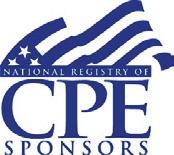
The Texas Society of CPAs is registered with the National Association of State Boards of Accountancy (NASBA) as a sponsor of continuing professional education on the National Registry of CPE Sponsors. State boards of accountancy have final authority on the acceptance of individual courses for CPE credit. Complaints regarding registered sponsors may be submitted to the National Registry of CPE Sponsors through its website: www. nasbaregistry.org.
View the complete schedule and register now in the Education area of our website or call the TXCPA staff at 800-428-0272 (972-687-8500 in Dallas) for assistance.


The use of corporate cash to repurchase shares has been in the spotlight for several years. Used as a means of improving earnings per share or avoiding dilution from employee stock ownership programs, repurchases are nothing new.
As part of the Inflation Reduction Act of 2022, a 1% levy on share repurchases became effective beginning in 2023. Regulation S-K Item 703 was adopted on May 3, 2024, and amends current disclosure rules that require registrants to report share repurchase activity on a quarterly basis. Current disclosures must include the total number of shares repurchased on a monthly basis and whether these shares were repurchased under a publicly announced plan.
The average price paid for the shares is also required to be disclosed. If the shares are repurchased under an announced plan, details of the plan including its date of inception, date of expiration and the amount approved (stated in number of shares or dollar amount) must be disclosed. Registrants typically disclose the required information in the equity footnote with similar or summarized information included in Item 5 (Market for Registrant’s Common Equity, Re-
lated Stockholder Matters and Issuer Purchases of Equity Securities) in the Annual 10-K.
The May amendments require that the number of shares acquired and the average price paid be disclosed on a daily basis for the quarter rather than summarized by month. Foreign private issuers and registered closed-end management investment companies will disclose the information semiannually.
The daily trading record will be disclosed on an exhibit to the Form 10-Q or Form 10-K. Foreign private issuers will disclose the information on a new form (Form F-SR) and registered closed-end management investment companies will use Form N-CSR.

DON CARPENTER, MSACC/CPA, is clinical professor of accounting at Baylor University. Contact him at Don_Carpenter@baylor.edu.
In addition to reporting the daily activity, registrants must expand their narrative disclosures to include the objectives and rationale for their share repurchases, the process or criteria used to determine the amount of the repurchases, and any policies and procedures relating to purchases and sales of securities by its officers and directors.
Companies will also be required to disclose whether certain officers and directors traded in the relevant security in the four business days before or after the announcement of a repurchase program. Disclosure is required regarding any Rule 10b5-1 trading arrangements begun or terminated during the quarter. Rule 10b5-1 plans allow officers and directors to set up a predetermined plan to sell or acquire shares while adhering to the insider trading regulations.
The proposed regulations do not appear to address the impact of accelerated share repurchases (ASRs) on the effectiveness of the expanded disclosures. The new disclosure requirements are effective for the first full quarter that begins on or after October 1, 2023 (fourth quarter 2023 for calendar year filers).
TXCPA TXCPA
In What’s Happening Around Texas, we give you highlights of events and activities happening around the state in the TXCPA chapters.
TXCPA Dallas members kicked off their morning with a perfect blend of steaming coffee and lively conversations at the Coffee & Connections event! The next opportunity to caffeinate and connect will be in April at Parks Roastery in Carrollton.
TXCPA East Texas members Ruben Rodriguez and Kevan Kirksey brought energy and expertise to the University of Texas at Tyler Beta Alpha Psi meeting, inspiring students with the limitless possibilities of a career in accounting. The chapter also donated $900 to cover the $75 induction fee for 12 students, paving the way for future leaders to join Beta Alpha Psi.
TXCPA Fort Worth hosted a fantastic members’ luncheon, shining a spotlight on their newest licensees!
TXCPA Chair Mohan Kuruvilla, Ph.D., CPA-Houston, shared essential insights into the strategic goals and key objectives shaping the future of our professional association. A big thank you to all who joined in making this event a success!
TXCPA San Antonio members gathered for a lively and memorable event celebrating the new iDEAL graduates. TXCPA Chair Mohan Kuruvilla, Ph.D., CPA-Houston, shared key updates on professional issues shaping the accounting profession. The event also included the election of the 2025-2026 Officers and Directors, setting the stage for a strong future of leadership and innovation.



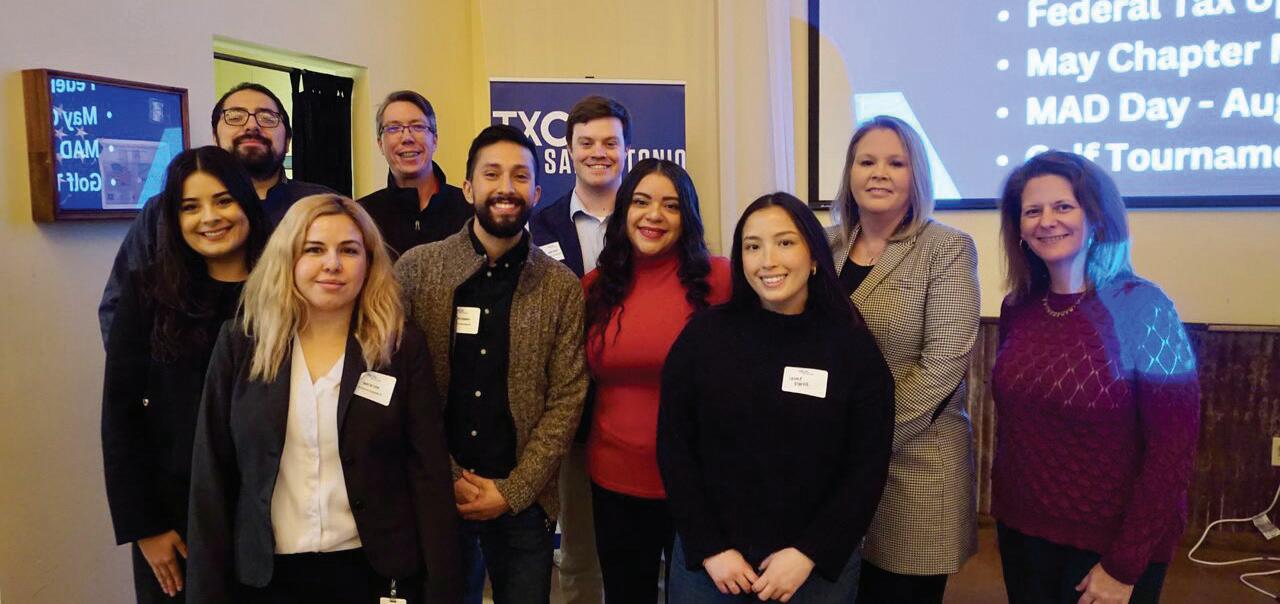




TXCPA member Shilpa Boggram
Sathyamurthy, CPA-Houston, CA, is an accounting leader with over 15 years of professional experience and a proven track record of delivering complex solutions across diverse industries. Recognized for her expertise in navigating intricate accounting standards, Shilpa focuses on lease accounting, segment reporting, derivatives and hedging, controllership, and digital finance transformations. Her work ensures regulatory compliance while driving operational efficiency. Today’s CPA recently had the opportunity to connect with Shilpa to learn more about her career path and what inspired her to pursue the CPA license.
Tell us a little about your background, education and career. Have you always worked in industry accounting?
I’m originally from Bangalore, known as the Silicon Valley of India. During my undergrad, I started to develop a passion for accounting. While I explored different career paths, I ultimately gravitated toward accounting because of the trust and credibility it has, plus the global opportunities it offers. I went on to complete the rigorous Chartered Accountancy from ICAI and Cost and Management Accountancy courses in India, securing an All India rank.
I started my career at Deloitte India in the Audit division, where I built a strong foundation, gaining exposure to end-toend audit procedures. I later joined Caterpillar India, where I worked on complex accounting topics related to manufacturing entities and financial statement analysis.
Driven by my passion to broaden my global outlook, I pursued my Master’s degree in Accountancy from Texas A&M University in College Station, Texas. Proud to be an Aggie! – and CPA to ensure I had the credentials to thrive in a dynamic, international environment.
I then joined Deloitte’s Advisory group in Houston, where I gained extensive experience in technical accounting, system implementations, financial statement carve-outs, and SOX compliance. After five years at Deloitte, I decided to join the technology giant Amazon, where I worked in the global lease accounting team, managing a portfolio of leases for Amazon’s rapidly expanding business unit and serving as a lease technical accounting advisor for global lease accounting teams. Having built a strong foundation at Amazon, I was excited to take on a new challenge and joined DoorDash’s accounting team to make a meaningful impact on this rapidly growing company.
I have had the opportunity to work in both public accounting and industry accounting. This diverse experience provided me with a well-rounded skill set and a broad perspective.
Throughout my career, I’ve been fortunate to work with incredible colleagues, mentors and leaders who have played a pivotal role in shaping my journey and supporting my growth. Their guidance has been invaluable and I’m deeply grateful for their influence on my career.
DoorDash is a fast-growing company, providing numerous career growth and learning opportunities. I joined in January 2022 as a Senior Manager in Accounting, where I initially led the global lease accounting team and the implementation of lease accounting software.
Later, I transitioned to the international controllership and consolidations team, where I oversee the financial statements for some of DoorDash’s international subsidiaries, including our joint venture with a retail partner in Canada. I focus on critical projects and initiatives, such as implementing consolidation tools, ensuring financial reporting readiness for different lines of business and for potential U.S. GAAP financial statement disclosures.
How does working in industry accounting differ from other areas within the accounting profession?
With over 15 years of experience, as I look back, I have spent an equal amount of time in both public accounting and industry. From my perspective, here’s how the two compare.
Public accounting offers a broad range of opportunities and exposure to complex accounting areas across different industries, new trends and evolving regulations. At Deloitte, I worked with clients in the energy sector, gaining expertise in derivatives and hedge accounting, which are particularly prevalent in that industry. When FASB introduced ASC 842, the new lease accounting standard, I had the opportunity to work on the implementation process for clients.
“Industry accounting shifts the focus to developing deep knowledge of one organization.”
In public accounting, the focus is on addressing clients’ needs and solving their challenges, which creates continuous opportunities for learning. For instance, while working on implementation of ASC 842 for a major oil and gas company, the client encountered delays in the lease accounting software’s reporting capabilities. As a result, the client needed an alternative solution. This presented me with the opportunity to design and implement custom lease reports for ASC 842 compliance and internal analysis.
In contrast, industry accounting shifts the focus to developing deep knowledge of one organization. The work revolves around supporting internal stakeholders, ensuring regulatory compliance and driving operational efficiencies. While I worked on lease accounting in public accounting, the complexity of the transactions I worked on at Amazon was much more involved.
Working in industry also allows you to take ownership of key initiatives within the company. At DoorDash, I’ve had the opportunity to work on critical projects that directly impact the growth, strategy and operational efficiencies for the company.
In terms of workload, public accounting can be demanding, often requiring long hours during deadlines and urgent client requests. Industry roles typically have peak periods – such as monthend, quarter-end and year-end close – along with project deadlines, which are generally predictable. Both paths offer valuable learning and growth opportunities, but in different ways. Public accounting provides broad exposure to a variety of industries and clients, while industry offers deeper
knowledge and the chance to contribute directly to an organization’s success.
You are actively serving on two committees for TXCPA. Why is being involved in committee service important to you? I currently serve as an Editorial Board member for Today’s CPA magazine and as a member of the TXCPA Awards Committee. Staying engaged with my fellow professionals and contributing to the growth of the profession is important to me because I believe in the power of collaboration and continuous learning. The accounting profession is ever-evolving and by connecting with others in the field, I can stay at the forefront of changes while also contributing to the development of future leaders. It’s a way for me to give back to a profession that has given me so much and to help ensure its continued strength and relevance.
Being part of the Editorial Board has not only given me the opportunity to share my insights but also to stay updated on the latest industry developments and trends through research and learning. Today’s CPA magazine is full of valuable insights.
Being a part of the Awards Committee is especially dear to me, as it allows me to celebrate the achievements of my fellow professionals and acknowledge those who have made a meaningful impact in the field, thereby encouraging young CPAs to achieve and make their own mark in the profession.

Tell us about your family. I have a young family with two energetic boys who keep us on our toes. My husband is a petroleum engineer and works for an engineering services company in Houston. Balancing family life, my professional commitments and community involvement gives me a strong sense of purpose.
My mother, sisters and in-laws have been a constant source of inspiration, motivating me to pursue my goals and stay committed to both my professional and personal aspirations. My family has been my pillar of support throughout my journey and I am deeply grateful for them.
What activities do you enjoy outside of work?
Outside of work, I enjoy running to stay fit and maintain both my physical and mental well-being. I’m also passionate about reading, as it helps me unwind and continues to expand my knowledge outside of my professional life.
Austin was buzzing with energy as over 200 passionate leaders from the accounting profession gathered for TXCPA’s highly anticipated 2025 Advocacy Day and Midyear Leadership Council Meeting, held on January 28-29. These two days were packed with powerful conversations, bold ideas and a shared commitment to advancing the profession.
Tuesday kicked off with the Advocacy Day program, offering attendees critical legislative updates and a call to action. Armed with details about recently filed pathways and mobility bills, participants headed to the Texas Capitol to engage directly with legislators and staff. Their mission? To advocate in support of legislation promoting alternative pathways to CPA licensure (SB 262/ HB 1757) and bills that enhance and modernize CPA mobility (SB 522/HB 1764). For a deep dive into the topics covered, don’t miss the cover story in this Today’s CPA issue.
The TXCPA Leadership Council Meeting on Wednesday was nothing short of dynamic. Led by TXCPA Chair Mohan Kuruvilla, Ph.D., CPA-Houston, the gathering included strategic discussions and updates on bold new initiatives shaping the future of TXCPA.

New Leadership and a Bold Rebrand. There was excitement as the 2025-2026 TXCPA leadership team was introduced. Chair-elect Angela Ragan, CPA-Central Texas, delivered an inspiring message about her journey to leadership and commitment to service.
Gary McIntosh, CPA-Austin, CFF, unveiled a new name and brand for the TXCPA Accounting Education Foundation. Stay tuned this spring as we share the news with members and the public!
Armed with details about recently filed pathways and mobility bills, participants headed to the Texas Capitol to engage directly with legislators and staff.
Treasurer’s Report. The financial report set the stage with insights from TXCPA Treasurer Christi Mondrik, J.D., CPA-Austin; Accounting Education Foundation Treasurer Lucas LaChance, CPA-Dallas, CIA; Investments Committee Chair Chris Lucas, CPA-Fort Worth, ABV; and TXCPA’s Chief Financial Officer, Jacob Briggs, CPAFort Worth.
Membership trends were then discussed. While TXCPA boasts an impressive CPA member retention rate of 85%, the challenge lies in replenishing new CPA members as others transition into retirement. To address this, the Leadership Council voted on a nominal dues increase – a strategic move to maintain financial stability and long-term success.
Strategic Growth and Structural Evolution. TXCPA’s President and CEO Jodi Ann Ray delivered key updates and timelines related to TXCPA’s Strategic Plan. The Membership Task Force is reviewing an updated membership model study to ensure TXCPA adapts to shifting demographics, enhances recruitment and retention, and provides greater flexibility and value to members.
Additionally, TXCPA’s Organizational Structure Task Force is discussing opportunities to streamline operations, leverage technology and improve localized service delivery.
The initial framework for value proposition messaging was also shared with the Leadership Council. Specialized toolkits for leaders and our chapters will be developed and shared soon to help us focus on communicating our value to members at every stage of their careers.
Looking Ahead. The momentum continues at the Annual Meeting of Members and Leadership Council Meeting on June 26-27, 2025, in Galveston. Don’t miss your chance to be part of these transformative discussions.
Your family, your home, your career – these are the things that matter most. With the TXCPA Member Insurance Program, you can protect them with confidence. Specifically designed for CPAs, this trusted, association-endorsed insurance offers comprehensive coverage that gives you peace of mind.
What makes TXCPA Member Insurance stand out? It provides customized protection tailored to meet the unique needs of you and your family. You’ll also gain access to exclusive savings through special member rates from top-rated insurance carriers. Plus, your participation supports TXCPA’s mission, helping strengthen the accounting profession and its community.

Visit txcpainsure.org or call 800-4280272 today to explore your options and take the first step toward peace of mind.
Erica Acosta, Texas A&M University - San Antonio
Sadaf Ahmed, University of Texas at Arlington
Felicia Alvarado, University of the Incarnate Word
Kimberly Alvarez, Angelo State University, Jerry and Rozelyn Love
Endowed Scholarship*
Shawn Arthur, Texas State University - San Marcos
Ayaan Asim, University of Texas at Dallas
Abdullahi Aweda, Texas State University - San Marcos
Rayyan Baloch, University of Texas at Dallas
Kate Bentley, Sam Houston State University, Gene Sumrall Scholarship*
Carmen Bernal, University of Houston - Downtown
Brant Bolton, Texas Tech University
Coressa Bosier, Texas State University - San Marcos
Brianna Brown, Texas Lutheran University
Cierra Brown, University of North Texas at Dallas
Jaden Chandler, Lamar University
Reina Cruz Castillo, University of Houston - Downtown
Maxine DePalma, University of Texas at Tyler
Priscilla Eshun, University of Texas at Rio Grande Valley
Alyssa Frankis, University of Texas at Arlington, James A. & Charlotte Ann
(Charlie) Smith Scholarship*
Jose Garcia, University of Texas at Rio Grande Valley
Samantha Garcia, University of Texas at Rio Grande Valley
Unnati Goel, University of Texas at Tyler
Aye Aye Thet Han, University of Houston - Main
Hailey Hernandez, University of the Incarnate Word
Ethan Hexter, University of North Texas
Natasha Kataw, Texas Christian University
Aaron Kenigsberg, Houston Community College
Kailey Kessler, University of Texas at Austin, Willie Hornberger Scholarship*
My King, San Antonio College
Rachel King, Texas Tech University
Li Li, University of Texas at Dallas
Kevin Longoria, Texas State University - San Marcos
Jean Lozano, San Antonio College

The Corporate Transparency Act (CTA) is legislation that mandates the reporting of beneficial ownership information (BOI). The CTA has sparked widespread debate and a surge of activity surrounding the BOI reporting deadline. With the landscape continuing to rapidly evolve, TXCPA is dedicated to keeping members informed about the latest developments and implications of BOI reporting. Stay ahead of the curve – watch your TXCPA member communications and visit bit. ly/4fKOiE3 to explore the key issues and what they mean for you.

If you’re facing challenges related to addiction, substance abuse or mental health, TXCPA Peer Assistance is available to provide support. Access our weekly support groups, send a confidential message and explore additional resources at tx.cpa/ resources/acan
Sean Macias, Trinity University, C. Jeff Gregg Memorial Scholarship*
Grant Mahlmann, Texas A&M University - College Station, Erik & Felix Lopez
Memorial Scholarship*
Melika Mohammed, Trinity University
Amber Molina, University of Houston – Main, Kelly Hunter Scholarship*
Mohammad Hammaad Mondal, Texas Tech University
Drew Morrison, Angelo State University
Aizhan Mukhametzhanova, Rice University
Cayla Ng, University of North Texas, Robert “Bob” Owen Scholarship Fund*
Trinity Perez Martinez, University of Texas at El Paso, Kym Anderson
Scholarship*
Mary Raymond, Texas A&M University - College Station, Ann Michele King
Memorial Scholarship*
Elexus Reid, Houston Community College
Haylee Reyna, Texas A&M University – Kingsville, Steve Tillinger Scholarship*
Michelle Sanchez, University of Houston - Downtown
Sheila Sanchez, University of Texas at Rio Grande Valley
Brianna Schnell, University of Texas at Tyler
Edward Sengai, San Antonio College
Grant Sheehan, Tarleton State University, TXCPA Fort Worth Chapter Scholarship*
Maura Teer, Texas Christian University
Alicia Tijerina, Texas State University - San Marcos
Cruz Untz, Texas State University - San Marcos
Dane Wiest, Texas Tech University
Casey Ybarra, University of Texas at Rio Grande Valley
Yann Zigman, Trinity University
* Named Scholarship

BY KENNETH BESSERMAN, TXCPA DIRECTOR OF GOVERNMENT AFFAIRS AND SPECIAL COUNSEL, AND DELYNN DEAKINS, TODAY’S CPA MANAGING EDITOR
The accounting profession is facing transformative challenges in 2025, with a growing need to address the CPA talent pipeline and licensing pathways in Texas and beyond. As workforce trends shift globally and nationally, state legislatures and professional associations are taking bold steps to modernize the profession and make it more accessible, adaptable and aligned with current workforce demands.
For years, the CPA profession has grappled with a declining talent pipeline, a problem that reflects broader global workforce trends. Between 2022 and 2050, the working-age population in 61 out of 195 countries is projected to shrink by 1%.
In the U.S., the working-age population has grown by only 3% over the last decade, while the non-working population has increased by 13%. This demographic shift, combined with 10,000 baby boomers reaching retirement age daily, has left industries – accounting included – struggling to fill critical roles.
In response, AICPA launched the National Pipeline Advisory Group (NPAG) in 2023. This group explored data-driven solutions, recommending six strategies to address the talent shortage:
• Tell a more compelling story.
• Address the cost and time of education.
• Make the academic experience more engaging.
• Provide better support to CPA Exam candidates.
• Enhance the employee experience.
• Expand paths for underrepresented groups.
In Texas, TXCPA has been actively working on pipeline strategies for years, formalizing a statewide CPA pipeline strategy in 2022 and bringing much-needed visibility to this issue.


Traditionally, becoming a CPA has required completing 150 semester hours, including an accounting concentration, passing the Uniform CPA Exam and completing work experience under a licensed CPA. While this structure remains foundational, recent changes and proposals aim to add flexibility to the path to licensure.
In 2023, Texas passed new CPA Exam eligibility requirements that now require the completion of 120 semester hours, including 21 hours of upper-level accounting courses and 24 hours of upperlevel business courses. Additionally, changes to the national CPA Exam, which started in 2024, now include completing four Exam sections within a 30-month window, with three core sections (FAR, REG, AUD) and one elective from Business Analysis and Reporting (BAR), Information Systems and Controls (ISC) or Tax Compliance and Planning (TCP).
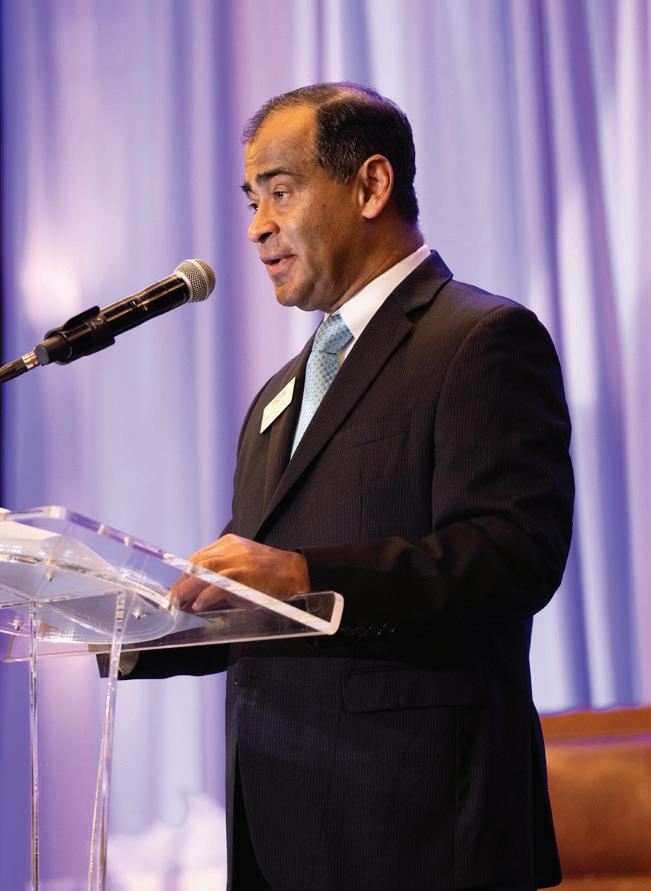
To become licensed, candidates must also complete 150 semester hours of education and 2,000 hours of relevant work experience over two years.
Recognizing the cost and time barriers associated with the traditional 150-hour requirement, AICPA and NASBA issued an exposure draft proposing an alternative pathway. This proposal would allow candidates to substitute an additional year of work experience (totaling 2,000 hours over five years) for the extra 30 semester hours of education. The goal is to broaden access while maintaining high professional standards.
In Texas, legislative efforts to add flexibility are gaining traction. Senate Bill 262 (SB 262), filed by Senator Charles Perry, CPA, and House Bill 1757 (HB 1757), filed by Representative Angie Chen Button, CPA, introduce a new licensure pathway requiring:
• A bachelor’s degree with an accounting concentration.
CPA Pathways Legislation: Filed Senate Bill 262
CPA Mobility Legislation: Filed Senate Bill 522

Sen. Charles Perry, RLubbock, is a practicing CPA. He currently chairs the Senate Committee on Water, Agriculture, and Rural Affairs and is Vice-Chair of the Senate Health and Human Services Committee. He also sits on the Senate Committees for Finance, State Affairs, and Transportation, and he co-chairs the State Water Implementation Fund for Texas Advisory Committee and the Texas Infrastructure Resiliency Fund. Since his election to the Texas Senate in 2014 – following two impactful terms in the Texas House – Sen. Perry has championed conservative principles, striving to cut government waste and improve efficiency. A proud West Texan, he remains deeply committed to policies that strengthen both his district and the state.
Representative Angie Chen Button, CPA
CPA Pathways Legislation: Filed House Bill 1757
CPA Mobility Legislation: Filed House Bill 1764
Rep. Angie Chen Button, RRichardson, wears multiple hats as a CPA and an experienced leader in economic policy. In the past, Rep. Button has chaired various committees, including the International Relations and Economic Development Committee, and has served as a member of the Ways and Means Committee. With a background at Texas Instruments (TI), Rep. Button brings a sharp business perspective to the legislature, ensuring economic growth and fiscal responsibility remain top priorities. Before her election to the Texas House, she had a long record of public service and community involvement in the Dallas/Fort Worth Metroplex.

On January 28, TXCPA hosted a dynamic Advocacy Day, bringing together accounting professionals, students and legislative experts to make an impact for important accounting profession issues at the Texas Capitol.
KICKING OFF WITH LEADERSHIP
TXCPA Chair Mohan Kuruvilla, Ph.D., CPA-Houston, set the tone for the day, emphasizing the importance of advocacy in shaping policies that affect the profession. Legislative Advisory Committee Chair Josh LeBlanc, CPA-Southeast Texas, followed, recognizing the dedicated volunteers behind the Key Person program, an influential network of around 150 TXCPA members who build and maintain strong relationships with lawmakers.
A lively panel discussion provided attendees with key insights into TXCPA’s legislative agenda and strategies for engaging with policymakers. The panel featured TXCPA’s Director of Government Affairs and Special Counsel Kenneth Besserman, President and CEO Jodi Ann Ray, and contract lobbyists Denise Davis and Lisa Kaufman – seasoned experts with deep knowledge of Texas politics and TXCPA’s priorities.
The panel discussed the key legislative issues of the session, with a strong focus on the CPA pipeline and two pivotal bills for TXCPA and the profession. They explored the impact of SB 262/HB 1757, which aim to establish a new pathway to CPA licensure, and SB 522/HB 1764, designed to modernize and enhance CPA mobility.
The day’s agenda was also packed with powerhouse speakers:
• Marta Zaniewski, AICPA Vice President of State Regulations & Legislative Affairs – Delivered an insightful update on federal issues and state CPA licensing issues that are progressing around the country, issues that our members need to know about as we advocate for licensing changes in Texas.
• Scott Braddock, Editor of Quorum Report – Offered an exclusive preview of the 2025 Legislative Session, sharing information on political and relationship issues that are often the undercurrent of what goes on behind the scenes during session and what may help or hurt the progress of legislation.
• Glenn Hegar, Texas Comptroller of Public Accounts – Provided a deep dive into the state’s economic outlook, the budget surplus in Texas, the needs that the state faces with an ever-growing population, the important work that the Comptroller’s office does, and the valued relationship TXCPA has with his office.
• Mark Koziel, President and CEO, AICPA – In his first state society visit since taking on his new leadership role at AICPA in January, Mark talked about the challenges to the profession and the opportunities that exist to move the profession forward.
TAKING ACTION AT THE CAPITOL
With fresh inspiration on their minds, TXCPA members descended upon the Capitol to talk to legislators and staff about our important 2025 legislative agenda. They met with over 140 legislators and legislative offices.
TXCPA was well received by legislators and staff and, most importantly, developed some new relationships and built on existing relationships. Our pathways and mobility bills are common sense approaches to address the CPA pipeline issues, and many legislators and offices understood that workforce development is a key issue that the legislature should address.
A special highlight was Senator Charles Perry, CPA, introducing and passing Senate Resolution 8, officially recognizing TXCPA for its contributions and designating January 28 as TXCPA Advocacy Day. Additionally, Rep. Suleman Lalani championed House Resolution 110, further solidifying TXCPA’s presence at the Capitol. A big thank you to both legislators for their continued support and partnership with TXCPA! Advocacy Day 2025 was a great success, and we will use all the work that our advocates and attendees did at the Capitol to further our agenda for the remaining months of the session. This event was a powerful reminder that when CPAs come together, their voices can influence meaningful change.
• Two years of work experience, as defined by the Texas State Board of Public Accountancy (TSBPA).
• Successful completion of the CPA Exam. If passed, the legislation will take effect on September 1, 2025, though stakeholders are advocating for a delayed implementation to January 1, 2027. The key benefits of SB 262/HB 1757 include:
• Flexibility: Adapts to different financial and educational circumstances.
• Affordability: Reduces financial and time barriers to licensure.
• Workforce Development: Expands the CPA pipeline to meet increasing demands in business, government and capital markets. It is important to note that the 150-hour requirement would remain an option for candidates, and proposed alternative pathways still include the required accounting and business concentrations needed in the 150-hour pathway.
Alternative pathways are being considered in at least 30 jurisdictions, reinforcing the need for modernization of the licensure process. By creating alternative pathways, this legislation ensures the CPA profession remains accessible and responsive to evolving workforce needs.
STRENGTHENING MOBILITY FOR CPAS
As licensing requirements change from state to state, the issue of mobility – ensuring CPAs can practice across state lines – has become critical. To address this in Texas, Senator Perry and Representative Button have introduced Senate Bill 522 (SB 522) and House Bill 1764 (HB 1764) respectively, which aim to enhance and modernize mobility standards.
These bills will ensure CPAs licensed in other states can continue to practice in Texas if they meet key requirements:
• Licensure and good standing in their home state.
Continues on next page



• A bachelor’s degree with required accounting and business courses.
• One to two years of work experience, depending on the licensure pathway.
• Passing the Uniform CPA Exam. The key benefits of SB 522/HB 1764 include:
• Consistency: Protects Texas businesses and taxpayers by maintaining professional standards for out-of-state CPAs.
• Clarity: Strengthens interstate mobility laws to accommodate changing licensure requirements nationwide.
• Autonomy: Ensures that Texas retains control over CPA practice privileges within the state.
As Texas and other states take proactive steps to address the CPA pipeline and mobility challenges, the profession is poised for significant transformation. By embracing flexibility, affordability and modernization, these legislative efforts aim to ensure the CPA profession remains robust, accessible and ready to meet the demands of a rapidly changing economy.


Go to the TXCPA website to see TXCPA's 2025 Legislative Agenda.


BY JIM WESLOH
In the heart of Texas, where the business landscape is as vast and dynamic as the state itself, the role of CPAs and finance professionals extends beyond the traditional confines of accounting. With the U.S. government channeling over $700 billion annually into contracts, a significant slice of this national pie finds its way to the Lone Star State.
This influx underscores the critical importance for Texas contractors to maintain an impeccable accounting system, with a spotlight on rigorous timekeeping and labor distribution practices. The stakes are high, as any deviation from compliance could lead to the withholding of government payments, a scenario no business wants to encounter.
At the core of this compliance challenge lies the need to navigate a labyrinth of government requirements and regulations. It’s not merely about ticking boxes to fulfill contractual obligations but safeguarding the integrity and credibility of government contracting.
For Texas CPAs and finance professionals, this means adopting an unwavering commitment to meticulous timekeeping. Governed by a complex web of regulations, understanding and adhering to these standards is paramount for ensuring contractors’ compliance with federal mandates and upholding the transparency and accountability of projects funded by taxpayer dollars.
The multifaceted requirements of timekeeping for government contractors is detailed in key documents, such as the Federal Acquisition Regulations (FAR), the Defense Federal Acquisition Regulation Supplement (DFARS), and the Defense Contract Audit Agency’s (DCAA) Contract Audit Manual (CAM), among others.
Within these requirements lies the necessity for precise and daily recording of labor hours. This foundational aspect, outlined by the CAM

the recorded time is reliably attributable to the correct person.
Changes to time entries are inevitable, yet they must be managed with a rigorous audit trail. This audit trail, as described by the CAM and DCAA Info, must capture all initial entries, subsequent changes and include detailed justifications for each alteration. This level of scrutiny ensures that any modifications to time records are transparent, verifiable and justifiable.
Make plans to attend TXCPA’s Single Audits and Governmental Accounting and Auditing Conference in Austin this September! Tailored for professionals working with or for government entities, this program provides essential regulatory updates.
Employee certification and supervisor approval processes are pivotal in this ecosystem. Employees are required to certify that their timesheets accurately reflect the hours worked, aligning with the CAM and DCAA Info directives. Similarly, supervisor oversight is a critical check in the process, ensuring that the timesheets are thoroughly reviewed and cosigned, adding an additional layer of verification.
The conference will include expert-led sessions on emerging topics such as compliance, cybersecurity, and more. Don’t miss this chance to expand your expertise and connect with peers. Stay tuned to the TXCPA website for upcoming details on session topics.
and DCAA’s Information for Contractors (Info), ensures that each hour worked is accurately captured and attributed to the correct cost objectives. The emphasis on daily recording of accurate data underpins the system’s integrity, minimizing the potential for errors or misrepresentations.
Equally critical is the implementation of robust work authorizations. These authorizations, including specific identifiers and detailed descriptions, must be clearly communicated to employees. This practice not only aligns with DCAA guidelines but also establishes a clear linkage between the employee’s work and specific contract objectives, enhancing the traceability and accountability of labor charges.
The system’s integrity is further reinforced through strict authentication measures for timesheet access. As per CAM guidelines, each timesheet must be uniquely linked to an individual employee, prohibiting shared access and ensuring that
In scenarios where employees are absent or on travel, the guidelines provide clear directives for timesheet preparation and subsequent verification upon the employee’s return. This aspect underscores the system’s flexibility, while maintaining its rigor.
The integration of timekeeping data with the General Ledger, as stipulated by DFARS and the Standard Form 1408 Preaward Survey, ensures a seamless flow of information from time recording to financial reporting. This integration is vital for maintaining accurate and current project cost records, facilitating timely and accurate billing and financial management.
The system must also be equipped to withstand DCAA floor checks, demonstrating that time is charged appropriately, and adjusted entries are well-documented and approved, as outlined in DFARS. This readiness for audit and inspection is a testament to the system’s robustness and compliance orientation.
Finally, record retention policies, as detailed in FAR, dictate the preservation of payroll-related records both during and after the completion of work. This practice not only serves as a historical record, but
also as a crucial resource for audits and reviews.
Here are the specific practices that underpin timekeeping compliance and accountability in government contracting:
• Timekeeping mandate
• Work authorizations
• Authentication and timesheet integrity
• Daily recording of labor
• Audit trails for time entries
• Employee certification and supervisor approval
• Supervisor completion of timesheets
• General Ledger integration
• DCAA floor checks
• Record retention policies
• Direct and indirect cost segregation
• Cost accounting and unallowable costs
If you would like more details on each of these practices, download the white paper “Mastering the Art of Timekeeping: Navigating Compliance in Government Contracting” available on the PROCAS website.
In Texas, where the spirit of independence and excellence runs deep, CPAs and financial professionals play a pivotal role in steering government contractors toward unwavering compliance and operational success. Mastering the art of timekeeping in government contracting is not just about meeting federal standards; it’s a testament to the commitment of Texas’ finance professionals to uphold the highest standards of integrity and accountability.

JIM WESLOH is the founder of PROCAS, a leading provider of financial solutions for government contractors. Wesloh is a University of Cincinnati alumnus.
ABOUT PROCAS: PROCAS has been a market leader in project accounting for government contractors for over 25 years. With its unparalleled expertise and innovative, customer-focused solutions, PROCAS remains committed to helping contractors seamlessly navigate the complexities of government contracting. To learn more about PROCAS, visit the Web and LinkedIn
BY SUNITA RAO, PH.D., AND BARBARA SCOFIELD, PH.D., CPA
SASB STANDARDS OVERVIEW: Guidelines for reporting ESG issues with financial materiality using industry-specific metrics.
INTEGRATION WITH ISSB AND IFRS:
SASB standards adopted by ISSB, contributing to IFRS S1 and S2 for sustainability disclosures.
GOVERNANCE AND EVOLUTION: Founded in 2011, transitioned to ISSB oversight, with ongoing enhancements.
MATERIALITY MAP®: Industry-specific sustainability framework with five dimensions; free Materiality Finder tool available.
The Sustainability Accounting Standards Board (SASB) standards are guidelines to companies for reporting on environmental, social and governance (ESG) matters that have a material financial impact on business, governmental and nonprofit entities. The SASB standards fulfill this mission by providing a framework of quantitative and qualitative metrics to operationalize the sustainability goals of organizations based on industry categories.
The SASB framework was adopted by the International Sustainability Stan
Disclosures and IFRS S2 Climate-related Disclosures.
SASB was founded in 2011 and is overseen by the SASB Foundation of 18 members that includes former chairs of the SEC and FASB, Big Four partners, and financial professionals associated with banking, investments, insurance, government, and education. The SASB organization and procedures are modeled on the Financial Accounting Standards Board (FASB), but unlike FASB standards that generally apply equally to all companies, companies select from 77 industry-specific SASB standards that represent a minimum set of disclosures

SASB Standards Board, which consisted of 11 members, was dissolved at the time the VRF [Value Reporting Foundation] was consolidated into the IFRS Foundation. The ISSB now has full responsibility for the maintenance and enhancements of the SASB standards. Three of the 14 inaugural members of the ISSB had been members of the SASB Standards Board. Recently, the ISSB has launched an initiative to do a more comprehensive enhancements project.”
In addition, the SASB website (https:// help.sasb.org/hc/en-us) says that a group of ISSB members, including the current Chair, Jeffery Hales, are “tasked with developing recommendations for the ISSB related to the maintenance, evolution and enhancement of SASB standards. The group will develop drafts of the required exposure drafts of amendments to the SASB standards and, after considering the stakeholder feedback, drafts of the final amendments. The ISSB as a full board will consider the recommendations of this group in ISSB meetings (which are public) and ratify the exposure drafts and, subsequently, the final amendments prepared by the group. The comment period for the exposure drafts will be the same as for those related to IFRS Sustainability Disclosure Standards.”

Greenhouse Gas Emissions
Human Rights & Rights of Indigenous Peoples
Workforce Health & Safety
Reserves Valuation & Capital Expenditures
Business Ethics & Transparency
Source: SASB standards at https:// sasb.ifrs.org/standards/download/
Gross global Scope 1 emissions, percentage methane, percentage covered under emissions-limiting regulations
Percentage of (1) proved and (2) probable reserves in or near indigenous land
Discussion of management systems used to integrate a culture of safety throughout the exploration and production lifecycle
Amount invested in renewable energy; revenue generated by renewable energy sales
Description of the management system for prevention of corruption and bribery throughout the value chain
Business Model & Innovation, and Leadership & Governance. However, each industry’s Materiality Map® includes just those dimensions and sustainability issues that are likely to have a material impact on a company’s financial results of a company in that industry. However, companies have to pay licensing fees to SASB to get access to the materiality map.
SASB introduced the Materiality Finder in Oct 2021, which proved to be beneficial for both companies and industries to find relevant material topics and to compare them alongside each other. The Materiality Finder can be freely accessed by everyone.
For example, the oil & gas industry has four separate industry standards: Production and Exploration, Midstream, Refining and Marketing, and Services. The Materiality Finder for Oil & Gas – Production and Exploration includes 10 disclosure topics and the SASB standards provide 27 separate metrics spread across 11 dimensions. Table 1 provides an example of the types of metrics in the SASB standards for the Oil & Gas - Exploration and Production.
Jean Rogers, founder of SASB, described how the SASB framework is designed to “help public corporations disclose material, decisionuseful information to investors in their mandatory filings such as the Forms 10-K or 20-F” in her remarks to the SEC Investment Advisory Committee in 2016. The SEC regulations on sustainability are currently on hold at this time, but companies adopting SASB standards currently are part of more than 3000 companies worldwide that have chosen to enhance their identification, management and communication of material sustainability and climate related threats and, as a result, boost corporate performance.

SUNITA RAO, PH.D , is an Associate Professor at Washburn University in Topeka, Kansas. Her research interests are sustainability reporting and assurance, firm financial performance, corporate governance and executive compensation. Her recent publications are in Administration & Society in 2023 and Corporate Ownership and Control in Feb 2022. She is on the editorial board of the Journal of Accounting, Ethics and Public Policy

BARBARA SCOFIELD, PH.D., CPA, is Professor of Accounting in the School of Business at Washburn University. Contact her at barbara.scofield@ washburn.edu.
While artificial intelligence (AI) can support the filing of tax returns, its uncontrolled use in an accounting practice poses significant risks. The wording of the AI prompt can greatly impact the quality of its response. AI’s accuracy is improved with prompt specificity, but divulging a client’s privileged tax information in a prompt could be a violation of AICPA’s Statement on Standards for Tax Services (SSTS) and the IRS’s Circular 230: Regulations Governing Practice before the Internal Revenue Service
Consistent with these standards, accounting professionals need to verify the output of these tools in the same way they would verify someone else’s work. Our prior companion piece, “Assessing AI From a Tax Perspective, Part 1,” strongly indicates that current AI tools are error-prone and provide limited value to preparers. In this article, we discuss the development and utilization of AI, as well as ethical/practice considerations for tax preparers.
Chatbots, which utilize natural language processing and interact with users through prompt-based commands, have been used in computer applications since the mid1960s. Companies began experimenting with machine learning and generative AI, the data-intensive technologies powering chatbots like ChatGPT and Microsoft Copilot, in the early 2000s.
Machine learning identifies patterns within its training data and uses these patterns to automate tasks and formulate predictions. Generative AI creates new content – such as computer coding, images or written works –in response to specific user prompts. Please see the TXCPA website for a summary of the evolution of chat-based technology as a means of accessing artificial intelligence.
OpenAI, the company that developed and released ChatGPT, was founded in 2015 as a not-for-profit research company committed to the ethical development of artificial intelligence. From its inception, OpenAI initially pledged to make its AI technology freely available. Keeping this pledge, OpenAI released ChatGPT 3.0 to the public in November 2022.1
Other tech firms released competing chat-based AI tools in the months follow-

BY WILLIAM M. VANDENBURGH, PH.D.; KIMBERLY JANE TRIBOU, PH.D., CPA; AND JAMES M. BRASWELL, PH.D.
ing ChatGPT’s release. Both Microsoft and Google subsequently launched sophisticated AI tools (Copilot and Gemini, respectively) in late 2023.2 Companies have also adopted generative AI technology specific to their organizations or adapted existing AI tools for limited purposes. For example, KPMG partnered with Microsoft to incorporate OpenAI technology atop its proprietary systems.3
Currently, four major AI tools are publicly available: Microsoft Copilot, Google Gemini, Perplexity, and ChatGPT, with other specialized tools like TaxGPT available on a fee-basis.4 Table 1 compares the costs of three tools that may support tax research and preparation.
Microsoft’s Copilot, which uses OpenAI’s GPT-4 technology, was included in Windows 11 updates beginning in November 2023. Initially tested in companies with 300 or more employees, the tool became widely available in early 2024. Microsoft currently charges corporate subscribers a fee of $30 per user per month for its Microsoft Copilot 365 tool.
The Perplexity.ai tool, launched in September 2023, utilizes artificial intelligence to provide direct and factual answers to
internet search questions.5 While ChatGPT and Copilot rely on their large language model (LLM) training to generate responses, Perplexity uses AI (GPT-4 Omni and Claude 3) to tailor real-time search prompts, summarize results and possibly return more accurate results.
TaxGPT utilizes both OpenAI GPT.4o and Claude 3.5 generative AI technologies to support tax research, tax preparation and tax communication. TaxGPT claims that its single focus on tax issues and its ability to search tax law in real time significantly reduce the risk of AI-hallucinations, which occur when the system interprets the prompt incorrectly and provides logical but incorrect responses.6
Initial results were mixed as to whether the workplace enhancements created by AI tools are worth the investment. For example, Copilot is known to make mistakes when asked to “crunch numbers” in Excel, the fundamental financial spreadsheet. Juniper Networks’ CIO Sharon Mandell said, “I wouldn’t say we’re ready to spend $30 per user for every user in the company.”7
However, chemical company Chemours provided Copilot access and AI training to over 1,000 professionals, finding it reduced the time required to compile and analyze

financial data. For tax professionals, the monthly or annual per user costs could add up, but the investment could be worth it if it expedites addressing inevitable tax questions that occur during the tax preparation process.
How AI is utilized and the way the questions are asked impacts the results. Since each of these tools differ slightly in the underlying AI technology and the LLMs used to train the tools, we used Copilot, Perplexity and TaxGPT to answer tax preparation questions. The results of these queries are presented in Table 2. While chat-based AI tools can automate routine tasks and support tax decisionmaking, using these tools without training and professional judgment can result in error-prone tax returns and could leave tax professionals susceptible to penalties. As seen in our queries, answers were often misleading or wrong.
At times, all three tools appeared to answer prompts with hedged or statistically likely responses, rather than technically or factually accurate responses. Copilot could provide disparate answers to the same tax questions depending on whether the (1) More Creative, (2) More Balanced, or (3) More Precise mode was selected. Additionally, Copilot did not
provide consistent answers if the question was asked multiple times.
The AI tools used in our comparison have time limitations. Copilot crafted most of its responses from its training database, which was current through 2021. As federal, state and local laws are constantly changing, this limitation could significantly impact tax preparation.
The GPT-4 technology embedded in each tool can execute real-time internet searches; in our tests, the search tool did
so with limited success. Only Perplexity could correctly determine the percentage of government securities within Fidelity’s Government Money Market Fund (SPAXX); this may have occurred as we asked at a later date. Further, TaxGPT’s internet search ability appears to be limited to tax preparation, not the valuations that support it.
AI’s current limitations can result in responses that are vague, hedged or patently incorrect. Our findings are consistent with
Per User Cost
* As of the writing of this article
Copilot Pro for Individuals: $20/month; Copilot for Microsoft 365: $30/month
Free users can conduct 5 free daily searches; Subscribers (/month) can conduct 600 daily searches. $1,000 per seat
In late April 2024, we asked AI platforms Perplexity and TaxGPT the questions below and compared these tools’ results we obtained early with Copilot’s during the 2024 tax season. We did not observe significant improvements in quality or accuracy using these tools.
SPAXX % of U.S. government securities held in 2023 (41.18 percent)
Closing value of Coca-Cola stock on October 5, 1995 (It was $17.66 per share, split-adjusted)
Copilot provided 2022 rates and recommended checking with Fidelity for updated information.
The earliest recorded stock quote was $9.30 on December 29, 1995. Copilot recommended checking a “detailed historical stock price database.”
Correct Could Not Determine
Could Not Determine Like Copilot, the closest information available was the closing price for CocaCola (KO) on December 29, 1995, which was $12.92.
Per the IRC, does the cost of a computer qualify for education credits?
Copilot responded vaguely, that “…the cost of a computer may qualify for education credits under certain conditions.” None of Copilot’s three precision modes answered completely correctly.
Could Not Determine It referred us to financial databases, stock market archives or historical stock price services.
Incorrect Perplexity’s search concluded that “the cost of a computer qualifies for education credits as long as it is used primarily by the beneficiary… Incorrectly reported that a computer can be a qualifying expense (if required by the institution) under both AOTC and the LLC.
other tax-based experiments using ChatGPT.8 Without a proper understanding of the underlying tax rules, a tax professional who follows the advice of chatbots risks providing incorrect information to their clients or the IRS.
To avoid violating AICPA and IRS standards of professional conduct, tax professionals must apply caution when using AI to support their work. Both AICPA and IRS standards require tax professionals to protect privileged tax information. Per OpenAI’s privacy policy, the application collects user-provided information to support its research, train the bot and improve the quality of future responses.9
Prompting the bot with privileged client information may inadvertently result in divulging this information in future prompts; however, TaxGPT’s privacy settings reportedly mitigate this risk. Unauthorized disclosures of privileged tax return information could be subject to strict and severe IRS penalties.
Additionally, Circular 230 requires due diligence from the tax professional and this due diligence extends to reliance on others. Using a chat-based AI tool to support tax preparation thus requires “engaging, supervising, training, and evaluating” the processes and the output provided by the bot.
Circular 230 imposes an even higher standard for written tax advice, forbidding tax professionals from relying on the advice of others if “the practitioner knows or reasonably should know that the opinion of the other person should not be relied on.”10 AI’s time limitations and admonition to “always consult with a tax professional or the IRS for the most accurate and up-to-date information” cast significant doubt on the reliability of the tool for many tax questions.
Our study illustrates how utilizing AI in tax preparation can yield incorrect answers to

complex tax questions. It is possible that AI can be used to support the preparation of “simple” 1040 returns, freeing preparers to focus on complex tax matters that require significant judgment and reducing preparation errors that may occur near the filing deadline.
Our companion article (Assessing AI From a Tax Perspective, Part 1) observed widely variable estimations of the tax basis used to calculate taxable income from investments. Reliance on AI’s bogus estimations could widen this tax gap.
Tax Note: The IRS is utilizing AI to combat the estimated $700 billion annual tax gap. In October 2024, Martin Fiore, deputy vice chair of tax at EY America, stated, “With AI, millions of lines of information can be looked at in minutes or hours instead of weeks or months.”11 As early as 2020, the IRS, states and foreign governments were utilizing AI to improve tax audits.12
Based on our tax scenario questions arising from the 2023 tax filing season, chat-based AI tools cannot fully synthesize constantly evolving federal and state laws, regulations and court opinions that drive tax judgments. While it will be interesting to see if AI tools’ tax answers improve in the coming years, tax law could be difficult or impossible for AI to truly master, as tax law is often full of gray areas, legal interpretations and changing rules.
AI answers are based largely on available reams of historical data that take time to incorporate into an AI platform. For certain tax prompts, Copilot’s database only included updates through December 2021.
Tax professionals should utilize AI platforms with extreme care, as answers are often outdated, wrong, misleading, and/ or incomplete (so-called AI hallucinations). Further, tax queries become incorporated in future updates to AI platforms and this can cause material data confidentiality concerns (i.e., AICPA Statement on SSTS and IRS Circular 230).
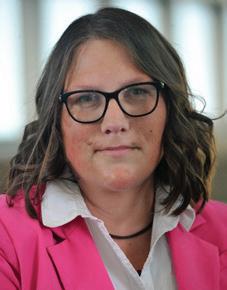
As Beverly Goodman, a tax manager quoted in the Washington Post, said, “I feel that my job as a tax professional is very secure.” The results of our study strongly support this statement.
Footnotes
1 OpenAI blog, 12/11/2015: https://openai. com/blog/introducing-openai
2 Microsoft Copilot announcement: https:// blogs.microsoft.com/blog/2023/09/21/ announcing-microsoft-copilot-your-everydayai-companion/; Google Gemini (Will Knight, Wired Magazine): https://www.wired.com/ story/google-gemini-generative-ai-boom/ 3 https://www.prnewswire.com/newsreleases/kpmg-llp-and-microsoft-establishindustry-leading-initiative-to-scale-generativeai-across-audit-tax-and-advisory-301822666. html, 5/11/23
4 https://copilot.microsoft.com/, https:// blog.google/technology/ai/google-geminiai/#sundar-note, https://www.perplexity.ai/ and https://chat.openai.com/auth/login
5 Forbes Magazine on Perplexity.ai: https://www.forbes.com/sites/joannechen/2023/09/06/how-perplexityai-is-pioneering-the-future-of-search/?sh=5dcde902ad91 6 https://www.cpajournal.com/2023/09/19/ chatgpt-for-legal-and-tax-professionals/, September 2023; https://www.taxgpt.com/blog/ taxgpt-vs-chatgpt
7 https://www.wsj.com/tech/ai/early-adopters-of-microsofts-ai-bot-wonder-if-its-worththe-money-2e74e3a2?mod=Searchresults_ pos1&page=1, 2/13/24
8 For a sampling of these experiments, https://www.journalofaccountancy.com/ news/2023/jun/can-chatgpt-answer-clientsquestions.html, https://www.taxnotes. com/tax-notes-talk/podcast/chatgpt-takestax/7g8z and https://wapo.st/43hBwaJ9 https://www.cpajournal.com/2023/09/19/ chatgpt-for-legal-and-tax-professionals/, September 2023
10 IRS Circular 230, §10.22(a)(1), §10.22(b) and §10.37(b)(1) and https://www.cpajournal.com/2023/09/19/chatgpt-for-legal-andtax-professionals/, September 2023
11 https://www.barrons.com/articles/the-irswill-use-ai-to-do-more-tax-audits-its-not-allbad-b3c03bf1?mod=Searchresults, 10/12/24 12 https://www.wsj.com/articles/ai-comesto-the-tax-code-11582713000, 2/26/20
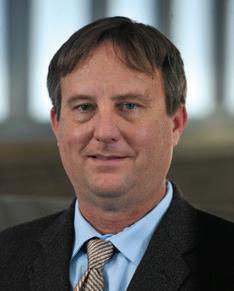
CURRICULUM:
Ethics and management
LEVEL:
Basic
DESIGNED FOR:
CPAs in industry and public practice
OBJECTIVES:
To explore the importance of codes of conduct and examine notable examples of codes from prominent companies
KEY TOPICS:
Understanding codes of conduct; exemplary codes; similarities and differences among companies; industry-specific strategies; and implementing and communicating codes
PREREQUISITES:
None
ADVANCED PREPARATION:
None
Today’s CPA offers the self-study exam for readers to earn one hour of continuing professional education credit. The questions are based on technical information from the following article. If you score 70 or better, you will receive a certificate verifying you have earned one hour of CPE credit in accordance with the rules of the Texas State Board of Public Accountancy (TSBPA).
Take the CPE quiz online on TXCPA’s website at https://www.tx.cpa/resources/todays-cpa
The State Board stipulates that the quiz is valid for one year from its publication in Today’s CPA. Quizzes submitted after this one-year period will not be accepted.

BY STEVE A. GARNER, PH.D., CPA, CFE

Codes of conduct serve as guiding principles for organizations, providing a framework for ethical behavior and ensuring compliance with legal and regulatory requirements. Corporate codes of conduct play a crucial role in maintaining ethical standards and preventing fraudulent practices. This article explores the importance of codes of conduct, examining notable examples of codes of conduct from prominent companies, including their similarities and differences along with their implementation and communication strategies.
A code of conduct is a set of guidelines that outline the expected behaviors and ethical standards for employees within an organization. It reflects the company’s values and defines acceptable practices, fostering a culture of integrity and accountability. By adhering to a code of conduct, organizations can maintain their reputation, build trust with stakeholders and mitigate the risks of fraudulent activities.
Fortune 500 companies recognize the significance of strong codes of conduct
in shaping ethical corporate cultures. To ensure effective communication and implementation, these companies endorse their codes of conduct at the highest executive levels and integrate them into their onboarding processes.
One notable example is Johnson & Johnson, whose code of conduct is enshrined in their well-known document, “Our Credo.” Their code emphasizes the commitment of the company to ethical practices. Unlike typical codes, the Credo focuses on the responsibility of the company to customers, employees, public communities, and shareholders. Their code emphasizes product quality, taking care of the patients and making contributions that improve global health.
Their code outlines several core principles guiding employees. First, it stresses a commitment to customers – be they health care providers, patients or families – that products are safe, effective and marketed in an ethical manner. Johnson & Johnson is also committed to the high standards of scientific integrity, ensuring that their research practices are transparent, and their products are rigorously tested.
The code’s commitment to employees focuses on providing fair compensation,
A code of conduct
reflects the company’s values and defines acceptable practices, fostering a culture of integrity and accountability. By adhering to a code of conduct, organizations can maintain their reputation, build trust with stakeholders and mitigate the risks of fraudulent activities.
ensuring a safe and inclusive workplace, and respecting the wellbeing of the employees. Social responsibility extends to the company’s efforts to engage with communities, emphasizing environmental sustainability, philanthropy and ethical global practices, particularly in emerging markets.
“Our Credo” further states that responsibility to the shareholders means the corporation must remain financially sustainable with the highest degree of ethical conduct. This document is continually updated.
Another exemplar is General Electric’s “The Spirit & The Letter,” which emphasizes integrity, fairness and accountability. The company mandates ethical conduct in all areas of its business, from interactions with customers to internal financial reporting.
GE places significant emphasis on avoiding conflicts of interest, adhering to anti-corruption laws and promoting honest communication. One of the key components of the code is its commitment to correct financial reporting, whereby employees are expected to be transparent in all documentation and communications of a financial nature. GE expects employees to recognize and report conflicts of interest.
The company urges its employees to maintain compliance with the regulatory frameworks for international trade, environmental standards and labor laws.

The company uses online platforms to distribute their code of conduct and mandates that employees participate in training.
“The Spirit & The Letter” also addresses the importance of diversity and inclusion within the company, promoting fair treatment and equal opportunities for all employees. It provides clear guidance on how employees should handle issues of harassment, discrimination and workplace ethics.
Walmart’s code of conduct, titled “Global Ethics and Compliance,” highlights the company’s commitment to integrity, compliance and responsible sourcing. Because of Walmart’s significant global presence, its code is designed to tackle a wide range of ethical concerns, from anti-corruption measures to employee conduct.
The code of conduct addresses conflicts of interest and has strict anti-corruption practices, especially in countries where corruption may be part of everyday life. The employees are expected to be aware of and follow all local and international laws, and there are robust mechanisms in place to report any unethical practices.
The other imperative aspect of Walmart’s code is responsible sourcing. The company insists that suppliers adhere to strict ethical standards, particularly regarding labor conditions, environmental impact and legal compliance. Walmart regularly audits its suppliers and places stringent checks to ensure compliance with these standards. Walmart’s code also emphasizes fair competition, ensuring that the company complies with antitrust laws and treats competitors fairly.
Coca-Cola’s code of business conduct reinforces the company’s values of integrity, diversity and responsible marketing. It addresses issues such as workplace conduct, environmental sustainability, and anti-corruption measures.
One distinguishing feature in CocaCola’s code relates to its stand on diversity and inclusion. The employees are allowed to report any case of discrimination and harassment, and the company provides a safe environment for whistleblowers.
Another critical tenet of the code at Coca-Cola deals with responsible marketing and consumer protection. The company puts strict limits on how to market the products, ensuring that advertising is truthful and does not exploit vulnerable populations. They also emphasize environmental responsibility, encouraging employees to adopt sustainable practices and promoting transparency in their environmental impact reporting.
rigorous standards when it comes to collecting, storing and using personal information. Additionally, the company is committed to protecting intellectual property, both its own and that of its customers and partners.
Another point that makes the Microsoft code quite different involves its focus on responsible AI development. Being one of the leaders in the AI space, Microsoft considers how to develop AI technologies that are ethical, nondiscriminatory and transparent. It requires employees to reflect on the potential consequences of the technologies they create for society and implement measures that will ensure the application of AI tools in a manner that respects human rights.
For codes of conduct to be effective, they must be embraced throughout the organization and consistently communicated. This involves several key practices:
• Endorsement by senior executives or board members
• Incorporation into orientation and regular reissuance
• Multi-channel communication
• Integration into performance management
• Whistleblower hotlines and reporting mechanisms
• Stressing the importance of fraud risk mitigation
• Acknowledging vulnerability to fraud
Microsoft’s code of conduct emphasizes ethical conduct, respect, and compliance with laws and regulations. It covers areas such as data privacy, intellectual property protection and responsible artificial intelligence (AI) development, reflecting the company’s position as a leader in the tech industry.
Microsoft is committed to guarding customer and employee private data with the best care and confidence. Employees are expected to adhere to
Microsoft fosters a corporate culture of ethical leadership wherein it expects all its employees, regardless of their rank, to exemplify nothing but the highest ethical standards.
The codes of conduct of the companies share several core elements, reflecting common priorities in promoting ethical behavior and ensuring compliance with legal and regulatory standards. Each has
a very distinctive, customized code fitted to its industry and corporate culture, but overarching themes tie these codes together, largely under the pillars of integrity, compliance, respect for employees, and Corporate Social Responsibility (CSR).
1. Commitment to Integrity. The philosophy guiding integrity underpins the code adopted by each of the companies. Integrity is a fundamental ethical principle arising for each of the five companies when business decisions are to be made with honesty, transparency and fairness. The focus on integrity means every company fosters a culture of trust and accountability, where employees are empowered to do the right thing and to report unethical behavior.
2. Regulatory Compliance. The second important similarity in the codes of conduct pertains to compliance with laws and regulations. Each company operates in highly regulated industries, requiring strict adherence to national and international legal frameworks. The web of focus on compliance reflects a broader industry trend, whereby multinational companies are increasingly being held more accountable for their numerous ethical and legal obligations across global markets.
3. Respect Towards Employees and Inclusivity. Another common factor is the commitment to cultivating a respectful and inclusive workplace. Each company recognizes the value of diversity and inclusion, promoting environments where employees are treated with respect, irrespective of their background, gender or ethnicity. Each company takes harassment seriously, offering employees avenues for reporting such incidents without fear of retaliation.
4. Corporate Social Responsibility. Another fundamental tenet within the five codes of conduct is CSR. In this regard, the companies have all pledged to see their activities create a positive impression on society either through sustainability matters, sourcing policies or community involvement. The commit-
ments to CSR reflect a broader corporate trend where companies recognize that their long-term success depends on their ability to make positive social, environmental and economic contributions.
5. Employee Education and Training. All five companies invest heavily in educating their employees on ethical conduct and compliance. They have instituted traditional training classes, e-learning programs and participatory workshops to help ensure that all employees understand the nuances of their particular codes. By providing employees with the necessary resources and guidance, these companies empower their workforce to act ethically and responsibly, aligning individual behavior with corporate values.
APPROACHES AND INDUSTRY-SPECIFIC STRATEGIES
While the ethical codes of conduct from Johnson & Johnson, GE, Walmart, Coca-Cola, and Microsoft do share several items in common, they also exhibit key differences that reflect the unique challenges and priorities of each industry. These differences are particularly evident in the way each company approaches regulatory compliance, technological responsibility, ethical sourcing, and employee engagement.
Industry-specific Focus. One of the most apparent differences lies in the industry-specific focus of each company’s code of conduct. At Johnson & Johnson, as a health care company, there is recognition of extra emphasis on product safety and care of patients. On the other hand, Microsoft’s code is highly focused on information privacy, cybersecurity and intellectual property rights, given the company’s dominant position in the tech industry.
GE operates in energy, aviation and manufacturing industries, and thus it focuses on environmental compliances, protection against accidents and antibribery laws related to international trade. Their code of conduct has specific rules for conflict of interest and financial integrity, which are critical in their heavily regulated industries.
Walmart and Coca-Cola are also focused on other areas. Walmart’s code places more emphasis on anti-corruption measures and responsible sourcing of
products, particularly in terms of labor conditions in developing countries where it sources its goods. On the other hand, Coca-Cola prioritizes responsible marketing and consumer protection, ensuring that its products are marketed ethically and in line with public health guidelines. Technological Responsibility. The second major point of divergence in the codes of conduct between Microsoft and the other four companies is the importance that Microsoft places on responsible technology development. As a leader in AI and cloud computing, Microsoft’s code makes special provisions concerning ethical use of AI and data-driven technologies. Employees are required to consider the societal impact of their inventions and ensure that AI tools are designed and used in a manner that respects human rights and minimizes biases.
This emphasis on technology is unique to Microsoft and is absent from the codes
Fortune 500 companies recognize the significance of strong codes of conduct in shaping ethical corporate cultures.
of Johnson & Johnson, GE, Walmart, and Coca-Cola, which do not operate in industries where AI or data-driven technologies play a central role. However, Microsoft’s focus on the ethics of technology is representative of broader concerns about the role that technology giants play in shaping societal norms and the potential misuse of AI.
in
Management. All five companies speak about the practice of ethics in their supply chains, but Walmart and Coca-Cola place a particularly significant emphasis on this area of responsible sourcing. Walmart’s code provides very elaborate guidelines to
its suppliers for compliance with international labor laws, environmental standards and anti-corruption measures. Walmart periodically audits its suppliers to ensure compliance, particularly in developing countries where labor exploitation and environmental degradation are significant concerns.
Coca-Cola is concerned about the issue of ethical sourcing, especially on environmental grounds. The company is committed to sustainable water usage, recycling and reducing its carbon footprint.
On the other hand, Johnson & Johnson, GE and Microsoft do have commitments to responsible sourcing but do not place an equal emphasis on supply chain management as a focal area. Their respective codes give far more attention to internal business practices and ethical conduct vis-à-vis employees, customers and regulatory compliance.
Employee Engagement and Empowerment. Each of these companies also varies in how it engages employees on the issue of ethical behavior. For instance, at Johnson & Johnson, much emphasis is given to employee welfare within the code of conduct through a host of resources that support work-life balance, health and personal development. The company’s “Our Credo” explicitly recognizes the mental and physical health of its employees as key and thereby enshrines it within their ethical framework.
On the other hand, the code of conduct at GE focuses more on accountability and compliance than the wellbeing and personal growth of employees. The company’s training programs are designed to ensure that employees understand and adhere to ethical guidelines.
Balance is struck with Walmart and Microsoft, where the policies reflect both compliance and employee wellbeing. For instance, Microsoft provides a wide array of benefits related to mental health and work-life balance, while Walmart puts more emphasis on training employees to be ethical in dealing with customers and suppliers. Coca-Cola, meanwhile, focuses heavily on diversity and inclusion.
CSR Priorities. Another dimension in which the companies under consideration differ is CSR focus. Johnson & John-

son and Coca-Cola emphasize community engagement and environmental sustainability, with both companies integrating these priorities into their core business models. Johnson & Johnson’s commitment to global health and Coca-Cola’s focus on environmental sustainability are central to their CSR strategies.
Microsoft’s CSR efforts, on the other hand, are more focused on technology and innovation, particularly in terms of promoting digital inclusion and ethical AI development. The company’s code of conduct includes specific commitments to using technology for good, addressing issues such as digital equity, education and access to information.
Walmart’s CSR focus is primarily on responsible sourcing and community development, particularly in the context
of its retail operations. GE’s CSR efforts, meanwhile, are largely centered around sustainability and innovation in energy and infrastructure, reflecting its role in the global energy sector.
Codes of conduct play a vital role by establishing ethical standards, preventing fraudulent activities and promoting a culture of integrity. Fortune 500 companies demonstrate the importance of strong codes of conduct by endorsing them at the highest levels and integrating them into their organizations.
By strategically implementing and communicating codes of conduct within their organizations, companies can foster ethical corporate cultures and facilitate stakeholder trust.


STEVE A. GARNER, PH.D., CPA, CFE, is an Associate Professor of Accounting at Tennessee Tech University. He may be reached at sgarner@tntech.edu. The Chartered Global Management Accountant (CGMA®) is the premiere designation for management accountants worldwide. Created by the AICPA and CIMA, this prestigious credential is awarded to professionals who exemplify excellence in finance, strategy, operations and management.

Visit www.cgma.org to explore the benefits and start your journey to becoming a distinguished leader in management accounting.
North Tarrant County, Texas CPA, almost ready to retire. Forty (40) year well established CPA practice, with a staff of six and great location. CPA seeking an extrovert, skilled with tax and accounting knowledge, to mentor in the practice of public accounting with eventual goal being to succeed the practitioner. Would consider merger or a starting practitioner CPA with a small client base. Present location is owner occupied and continued occupancy mandatory for at least three years. Serious inquiries only. Consultations by appointment only 817-332-3921.
ACCOUNTING BIZ BROKERS offers the following listings for sale:
Huntsville area gross $740k
Ark-La-Tex area gross $1.2M
North San Antonio gross $610k (Sale Pending) Texas County, OK gross $385k
Contact Kathy Brents, CPA, CBI Office 866-260-2793 - Cell 501-514-4928
Kathy@AccountingBizBrokers.com
www.AccountingBizBrokers.com
Member of the Texas Society of CPAs
Member of the Texas Association of Business Brokers
BUYING SELLING PRACTICES throughout Texas for over 40 years … Offering 95% conventional bank financing to buyers, so our sellers can cash out at closing! We only get paid for producing results! Confidential, prompt, professional. Practices available throughout Texas ... Contact Leon Faris, CPA ... PROFESSIONAL ACCOUNTING SALES ... 972-292-7172 … and visit our website: www.cpasales.com for the latest listings and information.
TEXAS PRACTICES CURRENTLY AVAILABLE THROUGH ACCOUNTING PRACTICE SALES
North America’s Leader in Practice Sales | Toll Free 1-800-397-0249. See full listing details and inquire/register for free at www.APS.net.
NEW $168,000 gross. Wichita Falls area CPA tax practice. Revenues are composed of a nice balance between individual returns (55%), business returns (39%) and others. The practice has a strong fee structure and is a great size for an individual starting. TXN5543
NEW $1,300,000 gross. Virtual accounting practice. Primarily a bookkeeping practice that has a profitable niche focus with a self-sustaining team. Desirable remote staff across the U.S. in place ready to continue with new owner. Optimal
opportunity with strong reputation for excellence to support buyer after sale. V5499
NEW $278,000 gross. Flower Mound semi-virtual CPA practice. Revenue is generated from profitable tax services (90%), supplemented by monthly bookkeeping and payroll services. Robust fee structure and minimal overhead generating strong cash flow to owner. Utilizes cloud-based systems and ideal for an experienced individual or established firm in the DFW area looking to start or expand with a highly profitable business with significant growth potential. TXN5510
$265,000 gross. Matagorda County tax and accounting practice. The service mix is a balance of both tax (72%) and bookkeeping (28%) that includes payroll. Great cash flow with an exceptional reputation in the developing community providing continued growth. Knowledgeable staff in place interested in working with the new owner. Buyer has flexibility to lease, purchase the building or move practice nearby if desirable. Available for transition after closing as agreed with buyer. TXS5425
$477,000 gross. West Houston CPA practice. CPA owner looking to semi-retire and is available for transition as agreed with buyer. Primarily tax services to client book. Year-round revenues in a prime location with great cash flow. An office share arrangement is available for the buyer. High-income, long-term quality clients that provide continuous referrals. Wonderful opportunity for an individual or firm looking to grow their practice. TXS5314
$424,000 gross. SW Houston tax and accounting practice. Boutique practice with high-net-worth individual clients and desirable fee structure. Provides tax, consulting, investment tracking and estate planning services. Excellent year-round cash flow with knowledgeable staff in place to continue with new owner. TXS5513
$910,000 gross. Sugar Land area CPA practice. Services offered are evenly mixed between tax (50%) and accounting (50%). Seller able to work part-time in the practice due to experienced staff in place. This opportunity would be great for either an individual buyer looking to get into practice ownership or an existing firm looking to add revenues and a 2nd location. TXS5491
NEW $169,000 gross. Orange County tax and accounting practice. Service mix comprised of tax (64%) and accounting (36%). Knowledgeable staff in place interested in working with the new owner. Good reputation in the area with excellent growth possibilities. Turn-key opportunity for an individual looking to start with a wonderful book of business. TXS5426
$63,000 gross. NW of Houston. Owner looking to make a career change and available for transitional help. Remote, loyal, long-term and friendly
clients with EXCELLENT year-round cash flow. Value-based billing fees paid by clients upfront before work starts. The service mix includes tax (27%), accounting (60%) and other (13%). Perfect for buyer looking to go out on their own or an existing practice to add easy revenue. TXS5345
$1,500,000 gross. East Texas CPA practice. Loyal client base of businesses and individuals, which should continue to generate referrals and opportunities for growth. Revenues are derived from a nice balance of accounting and tax services that provides steady, year-round income. There is a strong fee structure and a tenured staff in place. The seller is willing to stay on to assist after closing, prefers a 3-5 year transition, and is open to different buyout structures. TXN1631
$288,000 gross. West Austin CPA practice. Well established, single-owner CPA practice with 62% tax preparation (55% individual; 45% business); 24% bookkeeping/payroll; 8% consulting; 5% compilation and reviews. Cash flow to the owner is 81% of gross revenue. Owner anticipates assisting buyer through an appropriate transition. TXC5404
$130,000 gross. Bryan-College Station area tax practice. Owner available for transition as agreed with buyer. This is a tax practice with international clients in the TAMU community. Experienced EA staff ready to support buyer after closing. Great cash flow with opportunities to grow in accounting and bookkeeping. Buyer has flexibility to operate the practice from a nearby location. Turn-key opportunity for an individual looking to start with a wonderful book of business. TXS5283
$490,000 gross. Far North Dallas CPA practice. Approx. 80% total revenue is derived from businesses and overall nicely mixed between tax work (38%), audits (12%) and accounting/bookkeeping services (40%) generating year-round income. Knowledgeable staff in place, including 2 CPAs, for a smooth transition. No long-term leases. Cloud-based systems. Turn-key opportunity for CPA ready for business ownership or profitable addition for any firm. TXN5200
$1,303,000 gross. Midland-Odessa CPA practice. Revenues derived from 40% tax, 40% bookkeeping, 4% franchise reports, and 16% payroll. Cash flow to owner 57% of gross. One owner retiring. One owner staying full-time and all staff will assist in transition. TXW1034
$861,000 gross. Bryan-College Station CPA firm. Owner looking to sell to focus on consulting business. 2023 gross revenue estimated over $900K! The service mix includes tax (57%), accounting (38%) and other (5%). Solid reputation in the community with growth opportunities. Knowledgeable staff in place for smooth transition. Buyer can lease or buy building. TXS5067
$410,000 gross. Brownwood, Texas CPA practice. High-quality client base made up of large businesses provides room for growth. Balanced revenues of tax work (66%), accounting (14%) and other services (14%). TXN1638
$285,000 gross. Brazoria County CPA firm. Good reputation in the area with excellent growth possibilities. Service mix comprised of tax (94%) and accounting (6%). Knowledgeable staff in place and seller available for transitional assistance. Turn-key opportunity for an individual looking to start with a quality book of business. TXS1326
$354,000 gross. South Plains CPA practice. Single owner CPA firm with loyal clients. Revenues derived from 66% tax and 34% bookkeeping. Solid cash flow to owner of almost 60% gross. Full time staff and leased office space available. TXW1033.
$450,000 gross. Houston CPA firm. Service mix includes tax (63%), accounting (36%) and other (1%). Buyer can operate from anywhere in the Houston area. Year-round cash flow with experienced staff in place to continue with new owner. TXS1315
$253,000 gross. Far North Dallas CPA practice. Reputable firm that boasts a strong fee structure and desirable service mix between bookkeeping (38%) and tax work (62%). Experienced staff in place to assist in transition and provide capacity for growth. Perfect-size, turn-key opportunity for any experienced accountant or an easy profitable addition for an established firm. TXN5213
$1,137,000 gross. South Plains Texas CPA practice. Long-standing CPA practice with 2 owners. 62% tax preparation (66% individual and 34% business returns); 38% bookkeeping. Cash flow to owner is 42% of gross revenue. Practice utilizes Sage and Lacerte. 3 FT degreed accountants who do tax preparation and write-up. 4 FT non-degreed accountants who do tax preparation and write-up. 1 FT office assistant. Office space is owner-occupied; seller is open to selling or leasing space to new practice owner. Owners are looking forward to retirement after long, successful careers. Owners anticipate assisting buyer through an appropriate transition period to maximize knowledge transfer and client retention. TXW5320
$153,000 gross. NW Houston CPA audit practice. Transitional assistance available from owner. This is primarily an audit practice that caters to smallmedium sized organizations. Great cash flow with engagement letters in place through 2025. Buyer will need to be able to visit client locations in the greater Houston and Dallas area. Turn-key opportunity for an individual looking to start with a wonderful book of business. TXS5263
For more information, call toll free 1-800-397-0249 See full listing details and inquire/register for free at www.APS.net.
SEEKING CPA FIRM SELLERS
Ready to sell? Accounting Biz Brokers has GREAT NEWS for you! Accounting Biz Brokers has been selling CPA firms for over 20 years and we know your market. Selling your firm is complex. We can simplify the process and help you receive your best results! Our “Six Steps to Success” process for selling your firm includes a personalized, confidential approach to bringing you the “win-win” deal you are looking for. Our brokers are the only Certified Business Intermediaries (CBI) specializing in the sale of CPA firms in the nation! When you are ready to sell, we have the buyers, financing contacts and the experience to assist you with the successful sale of your firm! Contact us TODAY to take the first step!
Kathy Brents, CPA, CBI Office 866-260-2793 - Cell 501-514-4928
Kathy@AccountingBizBrokers.com
Visit us at www.AccountingBizBrokers.com
Member of the Texas Society of CPAs
Member of Texas Association of Business Brokers
BUYING OR SELLING? First talk with Texas CPAs who have the experience and knowledge to help with this big step. We know your concerns and what you are looking for. We can help with negotiations, details, financing, etc. Know your options. Visit www.APS. net for more information and current listings. Or call toll-free 800-397-0249. Confidential, no-obligation. We aren’t just a listing service. We work hard for you to obtain a professional and fair deal.
ACCOUNTING PRACTICE SALES, INC.
North America’s Leader in Practice Sales
MICHAEL J. ROBERTSON, CPA
Texas Sales and Mixed Beverage Tax Solutions
Client audited, liability, needs a review, we have found errors and changed the liability. Does your client have a compliance issue or general question about sales tax? Call our team of sales tax experts. Our team provides over 100 years of experience with the Comptroller of Public Accounts as former auditors and supervisors. We work to ensure a fair audit. Should your client need a payment plan, we’ll negotiate with the Comptroller of Public Accounts.
Call 817-478-5788 or 214-415-4333
Texas Sales and Mixed Beverage Tax Solutions
CLARUS PARTNERS - NATIONAL SALES TAX COMPLIANCE AND ADVISORY FIRM
Do you have questions about sales tax? Need help with multistate compliance after Wayfair? Taxability issues? Audit defense? Refunds? Business registration and licensing compliance? Voluntary disclosure?
Let us be a resource for your firm and your clients. Clarus Partners is a national sales tax compliance and advisory firm. With offices across the U.S., our four partners have a combined 100+ years of experience in this arena.
Let us know any way we can help.
Steve Hanebutt, CPA Clarus Partners | This firm is not a CPA firm 972-422-4530 | claruspartners.com | stevehanebutt@claruspartners.com

TXCPA offers opportunities to advertise in the Classifieds section of Today’s CPA magazine. For more information and to place a classified ad, please contact DeLynn Deakins at ddeakins@ tx.cpa or 800-4280272, ext. 8550, 972-687-8550 in Dallas.
